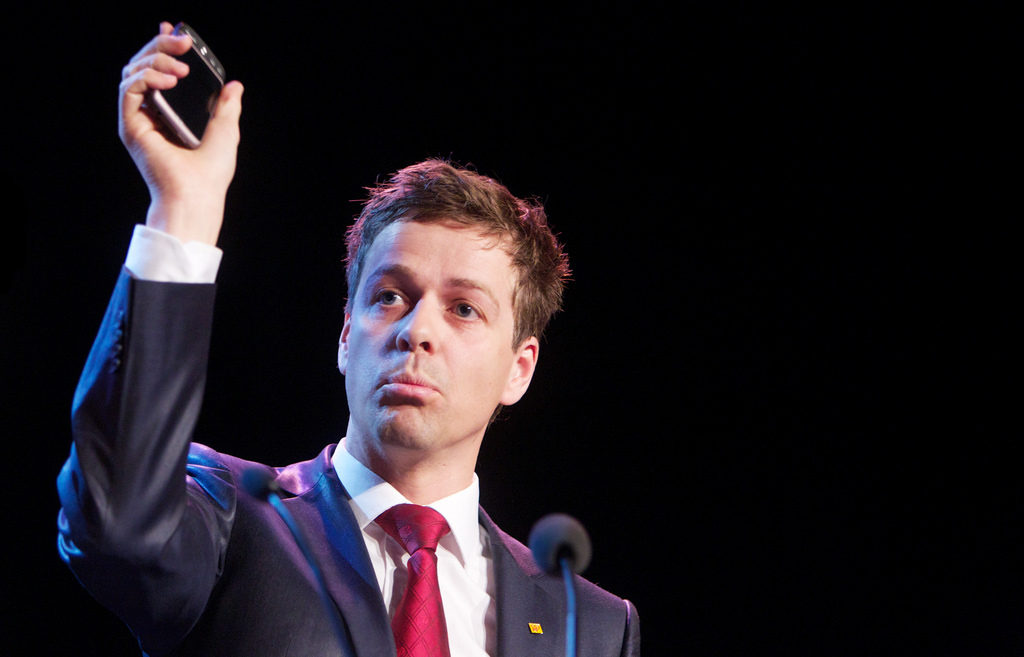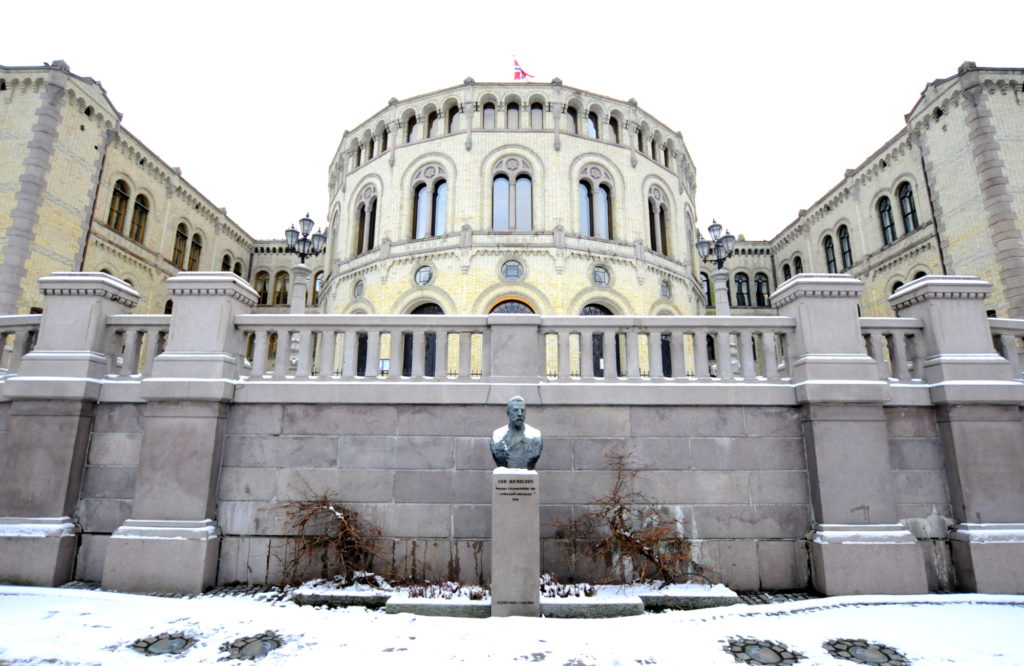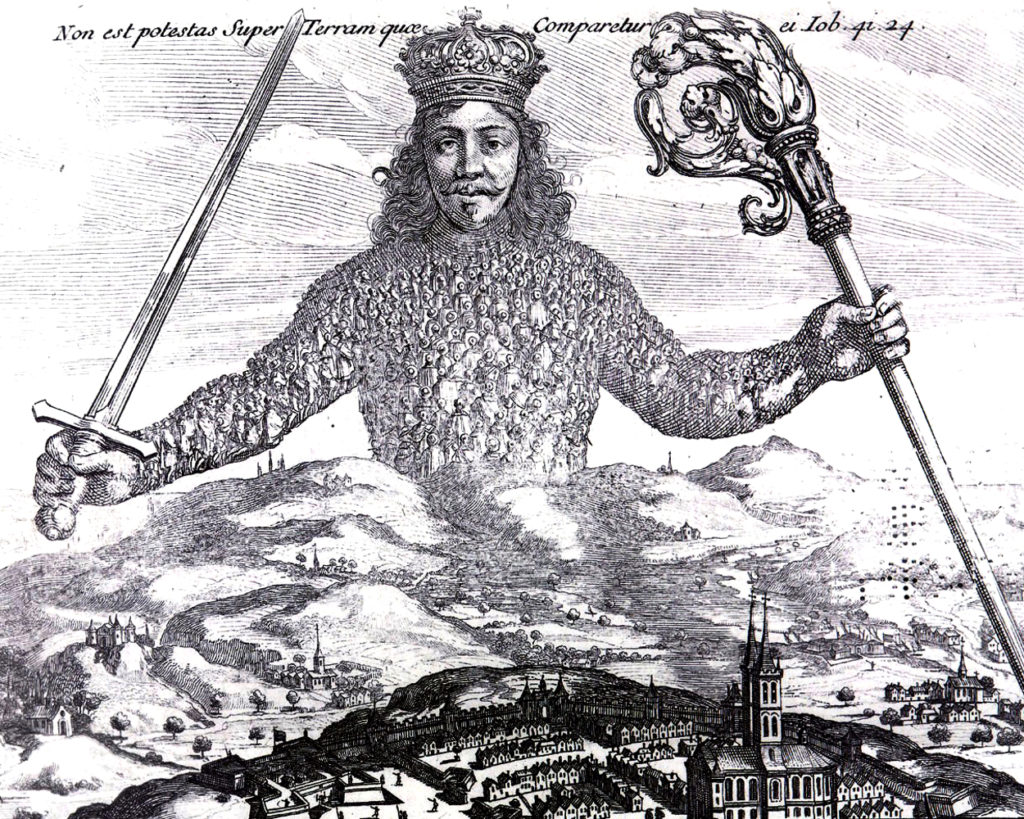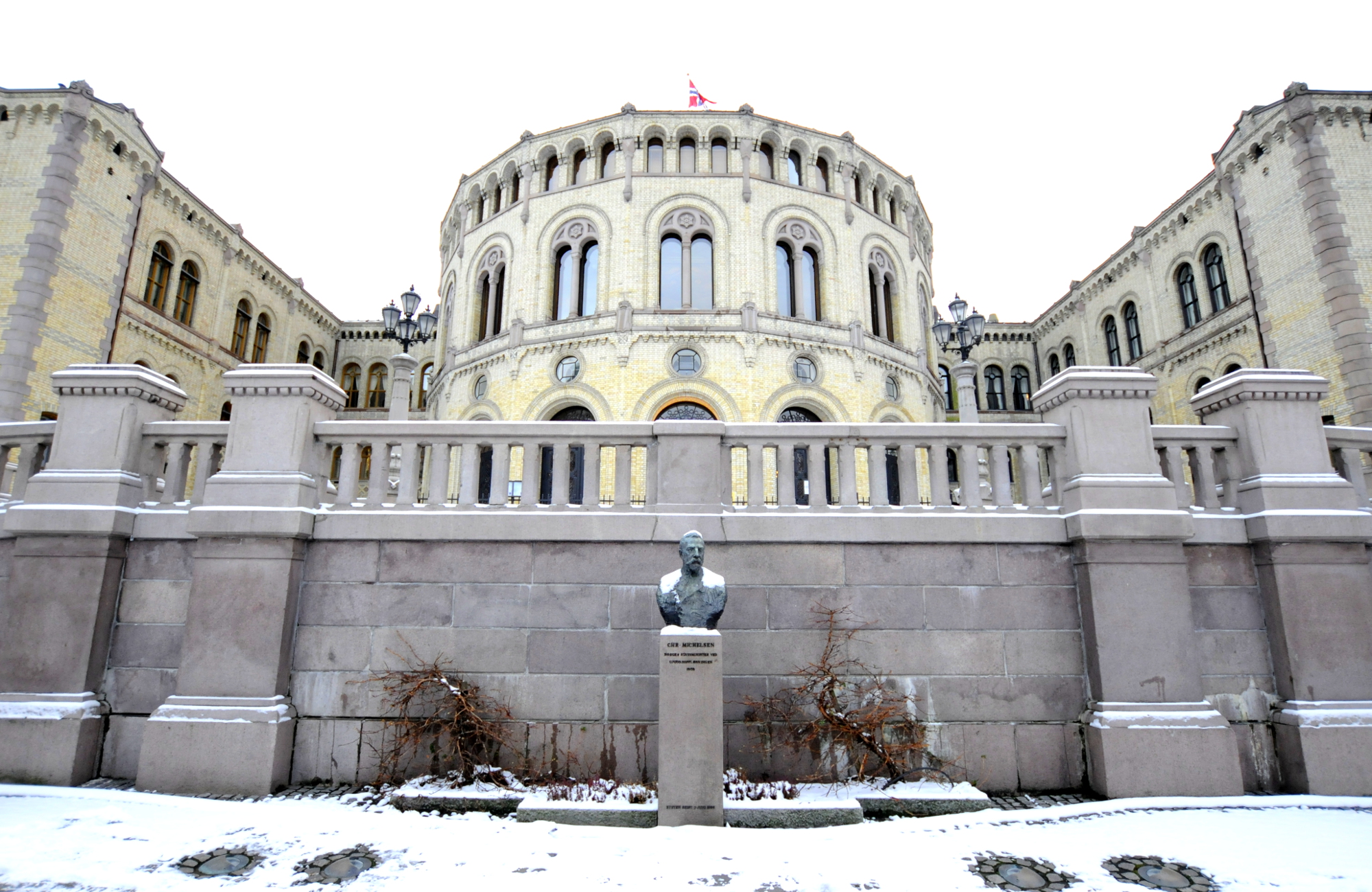Pagan Perspectives
Today’s column comes to us from our international columnist Lyonel Perabo. Lyonel holds an M.A. in Old Norse Religion from the University of Iceland and resides in the cold, Arctic city of Tromsø in Northern-Norway (69° north), where he works in the tourism industry, principally as a tour-guide, as well as a writer. His personal research focuses on local history from northern Fenno-Scandinavia, the Viking Age, and circumpolar religions, among others.
The Wild Hunt’s weekend section is always open for submissions, Please send queries to eric@wildhunt.org.
I doubt any reader of The Wild Hunt has heard about Knut Arlid Hareide and the political party he helms. Why would anyone need to, indeed, unless they happened to be a fellow compatriot of his? Yet, Hareide is, in some ways, quite important. He is the emblematic incarnation of one of society’s most enduring conflicts, the struggle between the secular and religious worlds.

Knut Arild Hareide in 2011 [nordiskemediedager.no, used under Creative Commons License: CC BY-SA 2.0].
The party’s political platforms reads like a cross between a tome of religious apology and one of those flyers found at the entrance of a church. In every other paragraph, the text reminds its readers of the importance of the “Christian worldview,” “Christian brotherly love,” “Christian culture,” “Christian-democratic ideology,” “Christian heritage,” and so forth. But besides being unapologetically Christian, what does the party stand for, and how could it be relevant outside the confines of little Norway?
While it could come as a surprise for many, the KrF is a relatively liberal party when it comes to a number of issues. The party wants to increase immigration, support the welfare state, fight child poverty, steer away from fossil fuels, and invest in infrastructure. On the other hand, the party is, at its core, a Christian party, and this religious background informs another set of key party positions: restrictions on abortion, support for Christian education in schools, and opposition to same-sex marriage and same-sex adoption. This unique blend of what one could call “social Christianity” on one hand and traditional conservative positions on the other has lead, in recent years, to the formation of a split in the party’s base and leadership alike.
Hareide, the party leader since 2011, saw this split form and develop as his party started to lose what little relevancy it previously had. A solid contender in national politics as late as the early 2000s, where it gave Norway a prime minister, the KrF has since slid into a state of quasi-irrelevancy. Gathering less than five percent of the national votes in the parliamentary election of 2017, the party ended up seventh out of nine parties in terms of votes, only beat in unpopularity by the Green and Communist parties.

The Norwegian parliament, the Storting [Lyonel Perabo.]
By some amazing workings of fate, a divided party, a party that put up its worst electoral performance in 80 years, would decide the political fate of the country. Ultimately, Hareide, who wanted an alliance with the left-wing parties, lost his bet, and the party’s internal direction voted instead to side with the right-wing coalition. As of writing this article, negotiations between the three government parties and the KrF are still ongoing, but could soon lead to the formation of a new majority government. Just like that, Norway’s Christian party might very well get some of its demands met, despite the fact that over 95% of voters did not express their support for them. What could this all mean for the future of faith in the country, and in Europe at large?
As I have written previously in my column What of the Christians, Norway is a country that has been experiencing extensive post-Christianization in recent years. Despite the Church’s increasingly liberal metamorphoses (for example, since 2017, the Church now recognizes and performs same-sex marriages), Norwegians still leave the Church in droves, and attendance levels remain among the lowest in the continent. It is a bit of an an anachronism that a near micro-party whose ideological core is based upon a religion that fewer and fewer Norwegians identify with would even have a say in national politics.
As an immigrant, I must admit that I am somewhat conflicted. My status as a non-citizen quite logically bars me from voting in the national elections, and I do not believe that it is my prerogative to tell the native Norwegians how they should govern themselves. Yet, as someone who was raised in one of the most secular countries in Europe, France, I cannot help but find the current politico-religious situation eerie and absurd.
In France, while I was growing up, the local counterpart of the KrF, the Parti chrétien-démocrate (PCD, “Christian Democratic Party”) was mocked relentlessly and had little to no influence on national policies, and almost no political figure of note ever openly associated themselves with any religions. This tendency toward avowed secularism (or, as we call it in France, laicité,) continues to this day. When I attempted to find any mention of Christianity in the political programs of the French parties represented at the parliament, I was only able to find one: a vague acknowledgment of Christian-democratic values on the program of a centrist party with two (out of 577 total) representatives. To me, the idea of a political party openly associating itself with a religious movement or institution just does not sit right.

The Leviathan of Thomas Hobbes by Abraham Bosse [public domain.]
Yet, while I, and I believe the majority of Pagans living in Europe would agree with me, do not deny the place of Christianity in the development of our civilization, I can safely assume that most of us would be happy to continue our development without the influence of the Church. In this, we are not alone. Secularists, members of religious minorities, atheists and many others agree for the most part with this assessment. Even among the Christians, the fault line separating social-Christianity and Evangelistic conservatism will not heal any time soon. Following the KrF’s decision to join the government, over a thousand members left the party. A few months earlier, when one party representative and part-time priest performed a marriage ceremony for a homosexual couple, several hundred others left as well. It is probable that parties like the KrF have run their courses. Far right parties will siphon away the voters who are more concerned about social stability and Christian identity, while various centrist and center-left parties will welcome those Christians who wish to keep in line with the idea of brotherly love and charity. The coming disappearance of organized political Christianity in Europe is, in the end, proof that questions of faith have now taken a back seat to broader and more critical questions of identity and civilization which are now on the table.
In the meanwhile, we Pagans will be left to our devices, which is probably for the better. We won’t be seeing the meteoric rise of a “Witches and Pagans Party” or a “United Heathen Front.” Instead, as long as our traditions become better understood, our various ideals and ideas will influence civil society further, a process that has arguably already started on both ends of the political compass. While they will never be fully contained within the walls of temples and churches, we can all hope that in the future, religions won’t represent a similar source of division, strife, and intolerance as they do today.
In the secular world I pray will rise from the ashes of ours, I envision a society in which religion is first and foremost seen as a source of individual spiritual enrichment that is better left to its own devices, something that is freely embraced, rather than a mere tool of societal control. I hope for something more akin to what makes life worth living, as Albert Camus wrote in Caligula, retelling the words of the mad emperor in the mouth of the poet Scipion:
“He told me that life isn’t easy, but that there still exists religion, art, and the love people have for us. He repeated, often, that inflicting suffering was the only way to be wrong.”
The views and opinions expressed by our diverse panel of columnists and guest writers represent the many diverging perspectives held within the global Pagan, Heathen and polytheist communities, but do not necessarily reflect the views of The Wild Hunt Inc. or its management.
The Wild Hunt is not responsible for links to external content.
To join a conversation on this post:
Visit our The Wild Hunt subreddit! Point your favorite browser to https://www.reddit.com/r/The_Wild_Hunt_News/, then click “JOIN”. Make sure to click the bell, too, to be notified of new articles posted to our subreddit.
